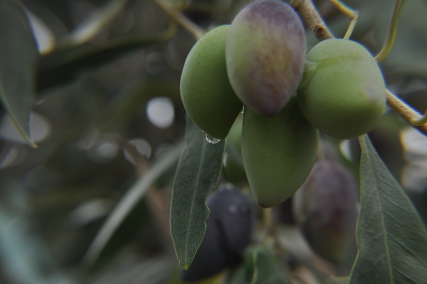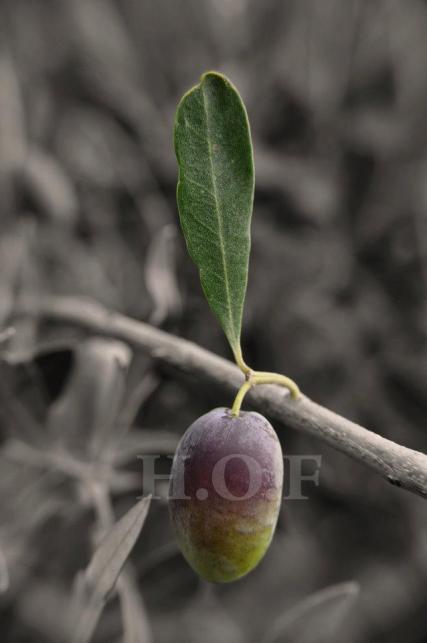ΠΑΡΑΔΟΣΙΑΚΕΣ Ελιές Καλαμών

Δώρο των θεών στους ανθρώπους είναι η ελιές , που ανάλογα με το μέγεθος τους,
( 6 μικρές ελιές ή 3 μεγάλες) δίνουν 45 θερμίδες, και ισοδυναμούν με ένα κουταλάκι του γλυκού αγνό ελαιόλαδο. Είναι επίσης μια καλή πηγή μονοακόρεστων λιπαρών οξέων.
Οι ελιές καλαμών χοντρολιές είναι πλούσιες σε θρεπτικά συστατικά , και συναγωνίζονται το εξαιρετικό παρθένο ελαιόλαδο. Περιέχουν σημαντικές ποσότητες βιταμίνης Α και καροτενοειδών και σε μικρές ποσότητες βιταμίνες Β1, Β6 και Β12. Οι μαύρες ελιές είναι πλουσιότερες σε συνολικές τοκοφερόλες σε σχέση με τις πράσινες και είναι οι μόνες που εμπεριέχουν β-τοκοφερόλες και α-τοκοτριενόλες. Τα ιχνοστοιχεία των ελιών είναι κάλιο, ασβέστιο, φώσφορο, σίδηρο και μαγνήσιο, ενώ αυτές που συντηρούνται σε άλμη περιέχουν μεγάλες ποσότητες νατρίου.
Οι ελιές εξ’ αιτίας της βιταμίνης Α βοηθούν τον οργανισμό στην ανάπτυξη και αναπαραγωγή, στην όραση, στο δέρμα , και έχουν αντικαρκινική δράση, ενώ οι τοκοφερόλες που περιέχουν έχουν αντιοξειδωτικές ιδιότητες με επίσης αντικαρκινική δράση.
Τα μονοακόρεστα λιπαρά οξέα ενισχύουν τη λειτουργία του κάρδιο-αναπνευστικού συστήματος και μας προφυλάσσουν από τις καρδιαγγειακές παθήσεις.
Οι βρώσιμες ελιές Καλαμάτας είναι η καλύτερη ποικιλία μαύρης βρώσιμης ελιάς στον κόσμο. είναι ένα αυθεντικό ελληνικό προϊόν και αποτελεί πηγή ενέργειας και μακροζωίας. Η πλούσια σε σάρκα ελιά με μικρό κουκούτσι και χαρακτηριστική γεύση την κάνουν ένα έδεσμα που δεν θες να λείπει πότε από το τραπέζι σου.

Συλλέγονται κατά τους μήνες Νοέμβριο – Δεκέμβριο από την περιοχή της Καλαμάτας Λόγω της γεωγραφικής της θέσης της περιοχής και τις γεωφυσικές συνθήκες που επικρατούν (ηλιοφάνεια 3000 ωρών το χρόνο), ωριμάζουν πάνω στο δέντρο με τον Ήλιο να τις θρέφει, και η αύρα της θάλασσας να τις διαπερνά, δημιουργώντας ένα μικροκλίμα που τις βοηθά να αναπτυχθούν, Ο μικρός κλήρος επιτρέπει σε κάθε παραγωγό να περιποιέται τα ελαιόδεντρα του.
Η συλλογή του ελαιοκάρπου, γίνεται με παραδοσιακές μεθόδους (με τα χέρια ελιά ελιά για να μην τραυματιστούν ) η διαλογή γίνετε με το χέρι αφού διαλεχτούν οι καλλίτερες ελιές της βάζουμε στο νερό να ξεπικρίσουν, και μετά διατηρούμε μέσα σε κόκκινο κρασί ελαιόλαδο και λίγο αλάτι, δεν χρησιμοποιούμε καθόλου συντηρητικά, ακολουθείται 100% φυσική διαδικασία , με αποτέλεσμα να εξαχθεί ένα προϊόν υψηλής διατροφικής αξίας.
Η κατανάλωση της ελιάς είναι σχεδόν σε καθημερινή βάση, ιδανικά χρησιμοποιείτε στη μαγειρική (ζυμαρικά) και στις σαλάτες, (χωριάτικη κ.α.λ) καθώς χόρτα πίτσα και λαδερά , τις καταναλώνουμε με ποικιλία τυριών, όσπρια, σαρδέλες ή, επίσης, πάστα ελιάς με ψωμί, φρυγανιά ή κράκερ.







